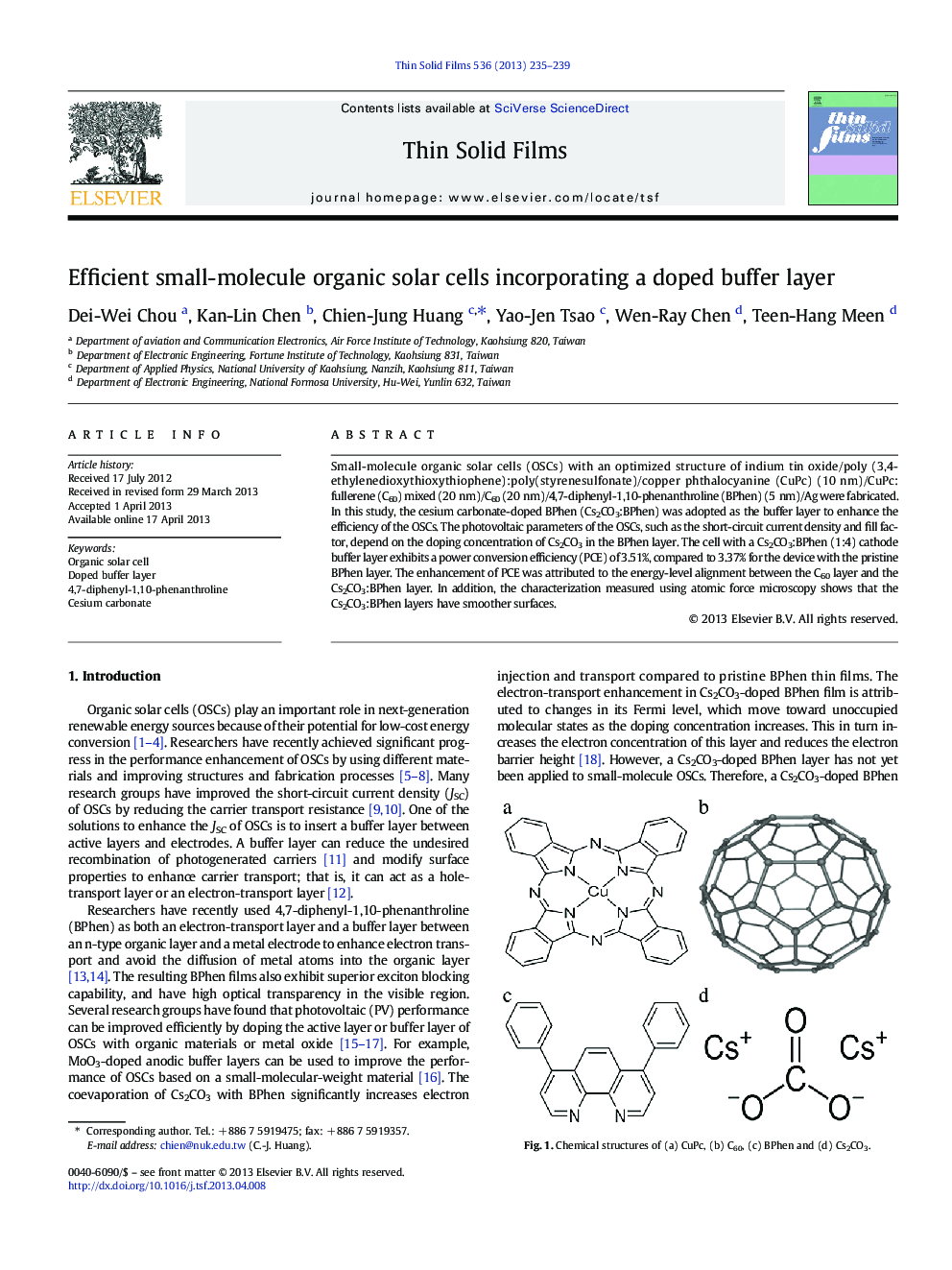| Article ID | Journal | Published Year | Pages | File Type |
|---|---|---|---|---|
| 8036837 | Thin Solid Films | 2013 | 5 Pages |
Abstract
Small-molecule organic solar cells (OSCs) with an optimized structure of indium tin oxide/poly (3,4-ethylenedioxythioxythiophene):poly(styrenesulfonate)/copper phthalocyanine (CuPc) (10Â nm)/CuPc: fullerene (C60) mixed (20Â nm)/C60 (20Â nm)/4,7-diphenyl-1,10-phenanthroline (BPhen) (5Â nm)/Ag were fabricated. In this study, the cesium carbonate-doped BPhen (Cs2CO3:BPhen) was adopted as the buffer layer to enhance the efficiency of the OSCs. The photovoltaic parameters of the OSCs, such as the short-circuit current density and fill factor, depend on the doping concentration of Cs2CO3 in the BPhen layer. The cell with a Cs2CO3:BPhen (1:4) cathode buffer layer exhibits a power conversion efficiency (PCE) of 3.51%, compared to 3.37% for the device with the pristine BPhen layer. The enhancement of PCE was attributed to the energy-level alignment between the C60 layer and the Cs2CO3:BPhen layer. In addition, the characterization measured using atomic force microscopy shows that the Cs2CO3:BPhen layers have smoother surfaces.
Related Topics
Physical Sciences and Engineering
Materials Science
Nanotechnology
Authors
Dei-Wei Chou, Kan-Lin Chen, Chien-Jung Huang, Yao-Jen Tsao, Wen-Ray Chen, Teen-Hang Meen,
